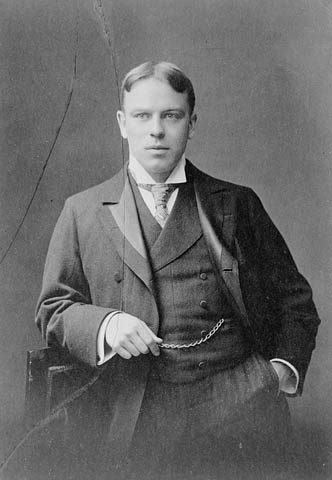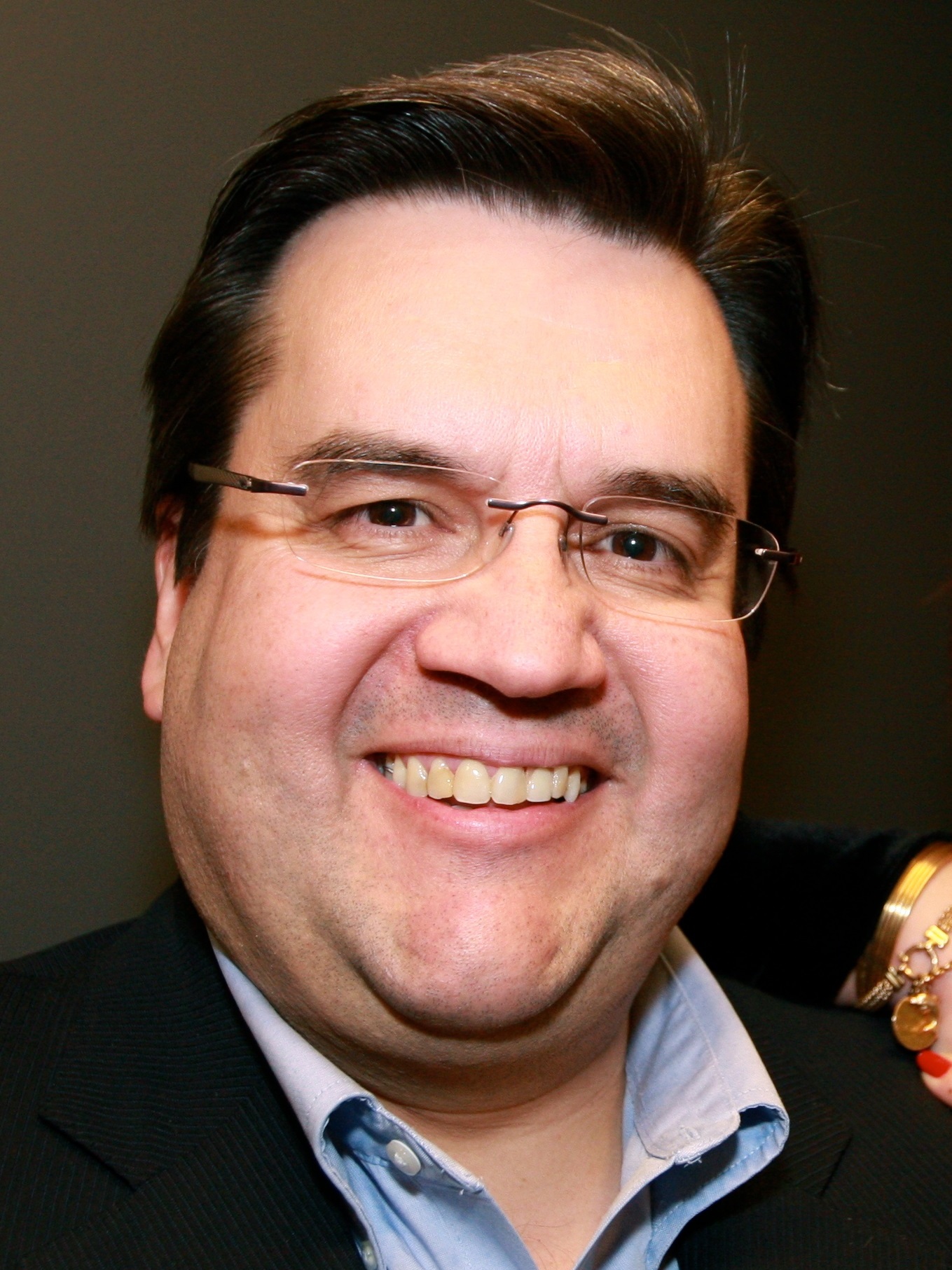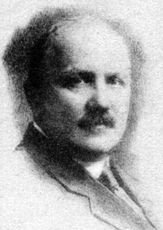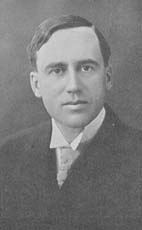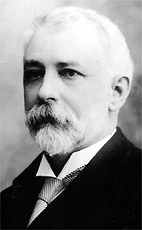|
Fourteenth Canadian Ministry
The Fourteenth Canadian Ministry was the second cabinet chaired by Prime Minister William Lyon Mackenzie King. It governed Canada from 25 September 1926 to 7 August 1930, including only the 16th Canadian Parliament. The government was formed by the Liberal Party of Canada. Mackenzie King was also Prime Minister in the Twelfth and Sixteenth Canadian Ministries. Ministers *Prime Minister **25 September 1926 – 7 August 1930: William Lyon Mackenzie King *Minister of Agriculture **25 September 1926 – 7 August 1930: William Richard Motherwell * Minister of Customs and Excise **25 September 1926 – 31 March 1927: William Daum Euler *Secretary of State for External Affairs **25 September 1926 – 7 August 1930: William Lyon Mackenzie King *Minister of Finance **25 September 1926 – 12 November 1929: James Robb **12 November 1929 – 26 November 1929: Vacant (John C. Saunders was acting) **26 November 1929 – 7 August 1930: Charles Avery Dunning *Receiver General of Canada **2 ... [...More Info...] [...Related Items...] OR: [Wikipedia] [Google] [Baidu] |
William Lyon Mackenzie King
William Lyon Mackenzie King (December 17, 1874 – July 22, 1950) was a Canadian statesman and politician who served as the tenth prime minister of Canada for three non-consecutive terms from 1921 to 1926, 1926 to 1930, and 1935 to 1948. A Liberal, he was the dominant politician in Canada from the early 1920s to the late 1940s. King is best known for his leadership of Canada throughout the Great Depression and the Second World War. He played a major role in laying the foundations of the Canadian welfare state and established Canada's international reputation as a middle power fully committed to world order. With a total of 21 years and 154 days in office, he remains the longest-serving prime minister in Canadian history. Born in Berlin, Ontario (now Kitchener), King studied law and political economy in the 1890s and became concerned with issues of social welfare. He later obtained a PhD – the only Canadian prime minister to have done so. In 1900, he became deputy minister ... [...More Info...] [...Related Items...] OR: [Wikipedia] [Google] [Baidu] |
William Richard Motherwell
William Richard Motherwell, (January 6, 1860 – May 24, 1943) was a Canadian politician serving at both the Saskatchewan Legislative Assembly and the Canadian Parliament. He served as Agriculture Minister for both levels of government during his career. Biography Born in Perth, Canada West, Motherwell attended the Ontario Agricultural College, graduating in 1881; then worked that summer in Portage la Prairie, Manitoba. The following year he spring he returned to the prairies joining settlers in who traveled by rail to Brandon, Manitoba, then by red river cart and wagon beyond to the area of Abernethy, Saskatchewan, where he settled and constructed the Motherwell Homestead. In 1901, he co-founded and became president of the Territorial Grain Growers' Association. He served in the provincial legislator from 1905 to 1918, Saskatchewan Minister of Agriculture from 1906-1917. His resignation from the provincial legislature was in protest over the provincial Liberal Party's s ... [...More Info...] [...Related Items...] OR: [Wikipedia] [Google] [Baidu] |
Robert Forke
Robert Forke, (April 6, 1860 – February 2, 1934) was a Canadian politician. He was elected as Member of Parliament for Brandon in 1921. In 1922, he replaced Thomas Crerar as leader of the Progressive Party of Canada. Forke served as a cabinet minister in the government of William Lyon Mackenzie King. Life and career Forke was born in Gordon in Berwickshire, Scotland, and was educated at public school in Westruther. He moved to Canada in 1882, and worked as a farmer. Forke was the reeve of Pipestone in Manitoba for twenty years before entering federal politics, and served as Secretary-Treasurer of the Union of Manitoba Municipalities for eleven years. He was initially a supporter of the Liberal Party of Canada, and campaigned for the Legislative Assembly of Manitoba as a candidate of the provincial Liberal Party in a by-election held on January 9, 1909. He lost to Harvey Simpson of the Conservative Party by 206 votes. Forke later became involved in the agrarian political ... [...More Info...] [...Related Items...] OR: [Wikipedia] [Google] [Baidu] |
Minister Of Immigration And Colonization (Canada)
The minister of immigration, refugees and citizenship (french: Ministre de l'immigration, des réfugiés et de la citoyenneté) is a minister of the Crown in the Cabinet of Canada, Canadian Cabinet. The minister is Responsible government, responsible for Immigration, Refugees and Citizenship Canada, which is the federal department responsible for Immigration to Canada, immigration, Refugees in Canada, refugee and Citizenship in Canada, citizenship issues in Canada. The current minister is Sean Fraser (politician), Sean Fraser. Prior to the current position, the portfolios responsible for immigration in Canada throughout history were titled: Immigration and Colonization (1917–36), Minister of Mines and Resources, Mines and Resources (1936–50), Citizenship and Immigration (1950–66), Manpower and Immigration (1966–77), and of Employment and Immigration (1977–96). The office as it exists today was created in 1994 by the ''Department of Citizenship and Immigration Act''. ... [...More Info...] [...Related Items...] OR: [Wikipedia] [Google] [Baidu] |
James Horace King
James Horace King, (January 18, 1873 – July 14, 1955) was a Canadian physician and parliamentarian. Born in Chipman, New Brunswick, James King was the son of George Gerald King, a businessman and Canadian politician in his own right. The elder King was a Liberal Member of Parliament in the nineteenth century, and a Senator from 1896 until his death in 1928. The younger King earned his MD from McGill University in 1895. After practicing medicine for a short period in New Brunswick, he moved to the Kootenay region of British Columbia in 1898 serving a large rural territory. In 1910, he attended an international medical conference in Budapest, and played a leading role in establishing the American College of Surgeons in Chicago, serving as a governor of the college. In 1932, he was created a Knight of Grace of the Venerable Order of the Hospital of St. John of Jerusalem for his services to medicine. In 1903, King was elected as a British Columbia Liberal Party member of the B ... [...More Info...] [...Related Items...] OR: [Wikipedia] [Google] [Baidu] |
Department Of Soldiers' Civil Re-establishment
The Department of Soldiers' Civil Re-establishment was established by the Dominion Government of Canada in 1918 to handle the major problem of returning Canadian servicemen to civilian life after the First World War. In 1928 it merged with the Department of Health to form the Department of Pensions and National Health, with its former responsibilities being carried out by the Pensions Division (later Pensions Branch). The Department employed 9,035 staff in March 1920, its peak period of operation, rapidly reducing to 5,485 by March 1921. Medical facilities The Department took over responsibility for the Military Hospitals Commission, which ran convalescent hospitals and homes for wounded soldiers. On 31 March 1921, the Commission's hospitals were caring for 6,264 in-patients (of whom 889 were being treated for mental problems and 1,376 for tuberculosis) and 540 out-patients. It directly or indirectly operated 31 hospitals and sanatoria, with total bed provision of 6,781. These in ... [...More Info...] [...Related Items...] OR: [Wikipedia] [Google] [Baidu] |
Minister Of Fisheries, Oceans, And The Canadian Coast Guard
The minister of fisheries, oceans and the Canadian Coast Guard () is the minister of the Crown in the Canadian Cabinet responsible for supervising the fishing industry, administrating all navigable waterways in the country, and overseeing the operations of the Canadian Coast Guard and the Freshwater Fish Marketing Corporation. The minister is the head of the Government of Canada's marine department, Fisheries and Oceans Canada, often referred to by its older (and technical) name: the Department of Fisheries and Oceans. History There was a minister of marine and fisheries from Confederation in 1867 onwards. The role was split in two in 1930, with duties related to fisheries going to the new minister of fisheries, and all other responsibilities going to the new minister of marine, which was merged into the role of minister of transport a few years later. The minister of fisheries lasted from 1930 to 1969, at which point the post was merged with forestry to create the post of ... [...More Info...] [...Related Items...] OR: [Wikipedia] [Google] [Baidu] |
Receiver General For Canada
The receiver general for Canada (french: receveur général du Canada) is responsible for making payments to the Government of Canada each fiscal year, accepting payments from financial institutions and preparing the Public Accounts of Canada, containing annual audited financial statements of the Government of Canada. The receiver general deposits and withdraws funds from the Consolidated Revenue Fund of Canada. The minister of public services and procurement is the receiver general for Canada. The ''Department of Public Works and Government Services Act, 1996'' states: "In the Minister's capacity as Receiver General, the Minister shall exercise all the powers and perform all the duties and functions assigned to the receiver general by law." Receivers General The first holder was Walter Murray, who was related to then Governor of Quebec James Murray from 1764. Murray was succeeded by Sir Thomas Mills from 1765 to 1777. Mills was often absent thus his office was held in acting ... [...More Info...] [...Related Items...] OR: [Wikipedia] [Google] [Baidu] |
Charles Avery Dunning
Charles Avery Dunning (July 31, 1885 – October 1, 1958) was the third premier of Saskatchewan. Born in England, he emigrated to Canada at the age of 16. By the age of 36, he was premier. He had a successful career as a farmer, businessman, and politician, both provincially and federally. A Liberal, Dunning led his government in one general election, in 1925, winning a majority government. He was the third of six Liberal premiers to date. He resigned as Premier in 1926 to enter federal politics and was succeeded by James Gardiner. He served in the Cabinet of Prime Minister William Lyon Mackenzie King. After leaving politics, Dunning served for many years as the Chancellor of Queen's University at Kingston. Early life Known throughout his life as "Charlie", Dunning was born in Croft, Leicestershire, England. As a teenager, he originally worked in an iron foundry in England, but in 1902, at age 16, he followed a friend's advice and travelled to Canada to work as a f ... [...More Info...] [...Related Items...] OR: [Wikipedia] [Google] [Baidu] |
James Robb (politician)
James Alexander Robb, (10 August 1859 – November 11, 1929) was a Canadian Member of Parliament and cabinet minister. Robb was a member of the Liberal Party of Canada. He served as Liberal Party Whip from 1919 to 1921. From 5 September 1925 to 28 June 1926 and again from 25 September 1926 until his death, he served as Minister of Finance in the administration of William Lyon Mackenzie King William Lyon Mackenzie King (December 17, 1874 – July 22, 1950) was a Canadian statesman and politician who served as the tenth prime minister of Canada for three non-consecutive terms from 1921 to 1926, 1926 to 1930, and 1935 to 1948. A L .... He served briefly as Acting Minister of National Defence in October 1926. References * External links * 1859 births 1929 deaths Canadian Ministers of Finance Members of the House of Commons of Canada from Quebec Liberal Party of Canada MPs Laurier Liberals Members of the King's Privy Council for Canada Peo ... [...More Info...] [...Related Items...] OR: [Wikipedia] [Google] [Baidu] |
Minister Of Finance (Canada)
The minister of finance (french: ministre des Finances) is the minister of the Crown in the Canadian Cabinet who is responsible for overseeing the Department of Finance and presenting the federal government's budget each year. It is one of the most important positions in the Cabinet. Chrystia Freeland serves as the 40th and current finance minister, assuming the role in August 2020 following the resignation of Bill Morneau. She concurrently serves as the deputy prime minister of Canada. Because of the prominence and responsibility of this cabinet position, it is not uncommon for former ministers of finance to later become prime minister. Charles Tupper, R. B. Bennett, John Turner, Jean Chrétien, and Paul Martin all became prime minister after previously serving as minister of finance. Responsibilities In addition to being the head of the Department of Finance, the minister of finance is also the minister responsible for: *Bank of Canada *Canada Deposit Insurance Corpor ... [...More Info...] [...Related Items...] OR: [Wikipedia] [Google] [Baidu] |
